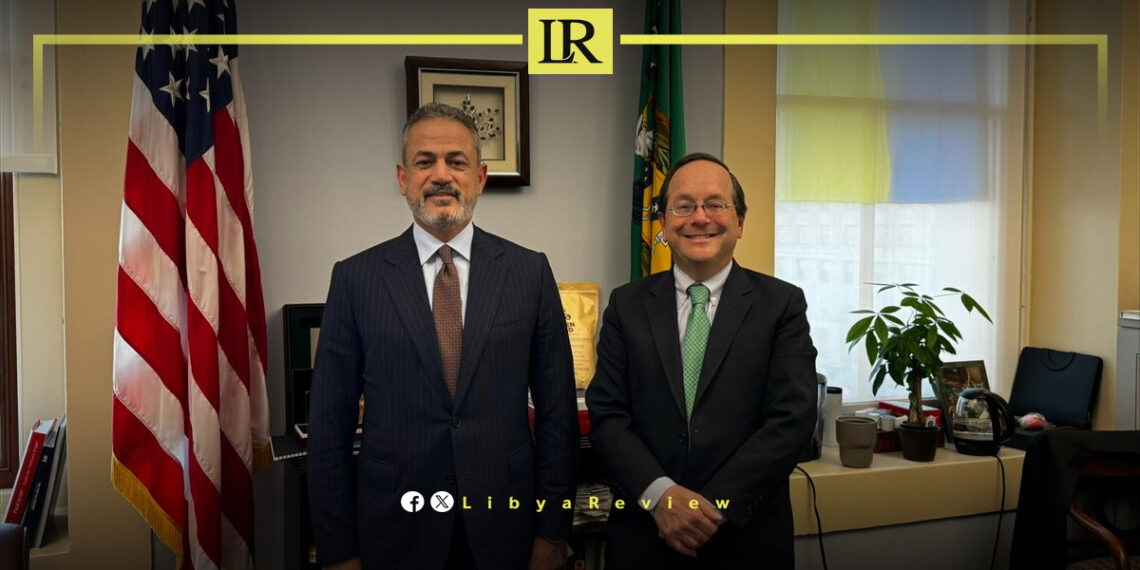Farhat Ben Qadara, the Chairman of Libya’s National Oil Corporation (NOC), held a series of meetings in Washington D.C. with top U.S. administration officials to discuss ways to support the autonomy of the NOC amidst ongoing challenges and pressures.
The discussions included a meeting at the White House with the U.S. President’s Special Advisor, Amos Hochstein, and with Assistant Secretary of State Joshua Harris, as well as with Sybil Siegel, the Acting Deputy Director for the Middle East at the U.S. Agency for International Development.
Ben Qadara also met with Anthony Marcus, the International Affairs Officer at the Treasury Department, and Jeffrey Pyatt, Brad Crabtree, and Josh Folds from the Department of Energy. His visit included a meeting with Assistant Secretary of Commerce, Thomas Burns, at the Department of Commerce.
During these meetings, U.S. officials reaffirmed their full support for the NOC’s efforts to maintain its independence and neutrality, particularly given the current challenges and pressures. They emphasized the need to protect the institution from interventions that could hinder its performance, highlighting its crucial role in securing the Libyan state’s revenue and stabilizing global energy supplies, especially amidst production cuts and the ongoing crisis with the Libyan Central Bank.
The U.S. officials expressed their willingness to provide all forms of technical and technological support to enhance governance and transparency within the NOC, as well as to improve the efficiency of workers in the Libyan oil sector.
Moreover, they stressed the importance of developing partnerships in reducing carbon emissions through technology transfer and knowledge necessary to achieve shared environmental goals. This includes initiatives introduced by the NOC at the global climate summit, Cop28, aimed at reducing methane and carbon dioxide emissions.
An agreement was made to continue coordination between the two sides, including organizing future meetings and visits to bolster economic cooperation and support the entry of U.S. companies into the Libyan oil sector.


